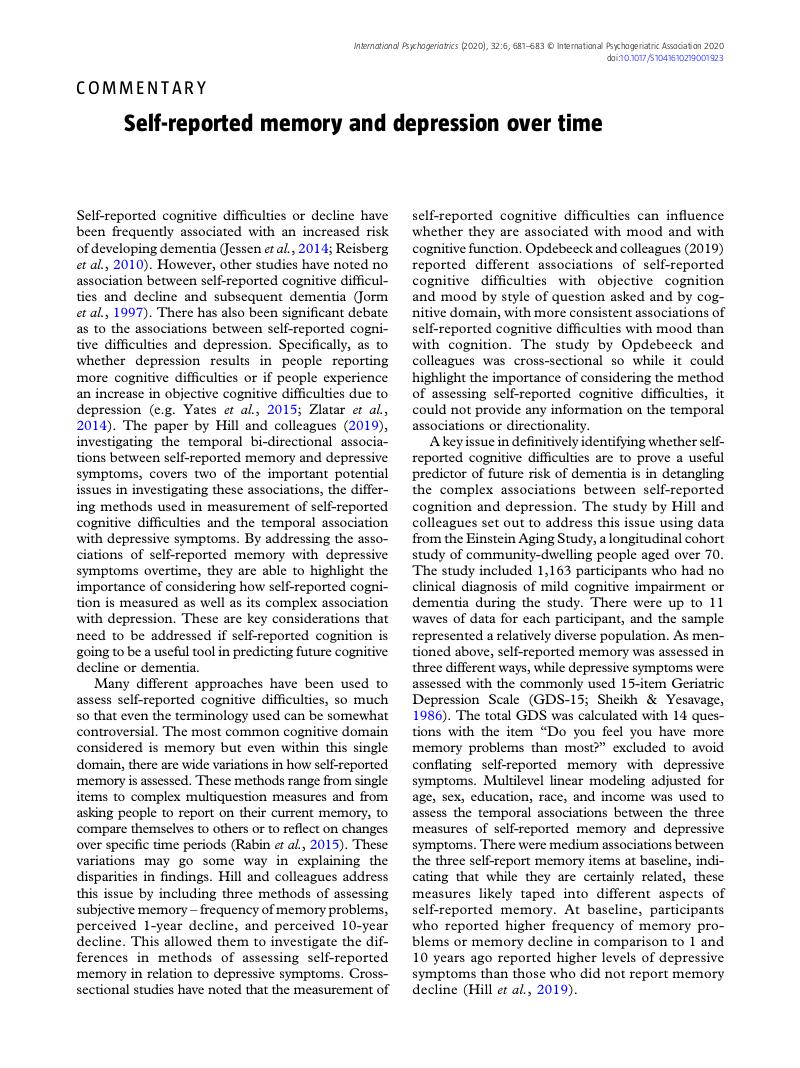Crossref Citations
This article has been cited by the following publications. This list is generated based on data provided by Crossref.
Colwell, Michael J.
Tagomori, Hosana
Chapman, Sarah
Gillespie, Amy L.
Cowen, Philip J.
Harmer, Catherine J.
and
Murphy, Susannah E.
2022.
Pharmacological targeting of cognitive impairment in depression: recent developments and challenges in human clinical research.
Translational Psychiatry,
Vol. 12,
Issue. 1,



